When our super super super test gets totally wild and out of control, it’s a good thing there are such reliable and luxurious vehicles as the Toyota Century. The only annoying thing is that the steering wheel was on the wrong side. And then there was the matter of the Japanese toilet bowls.
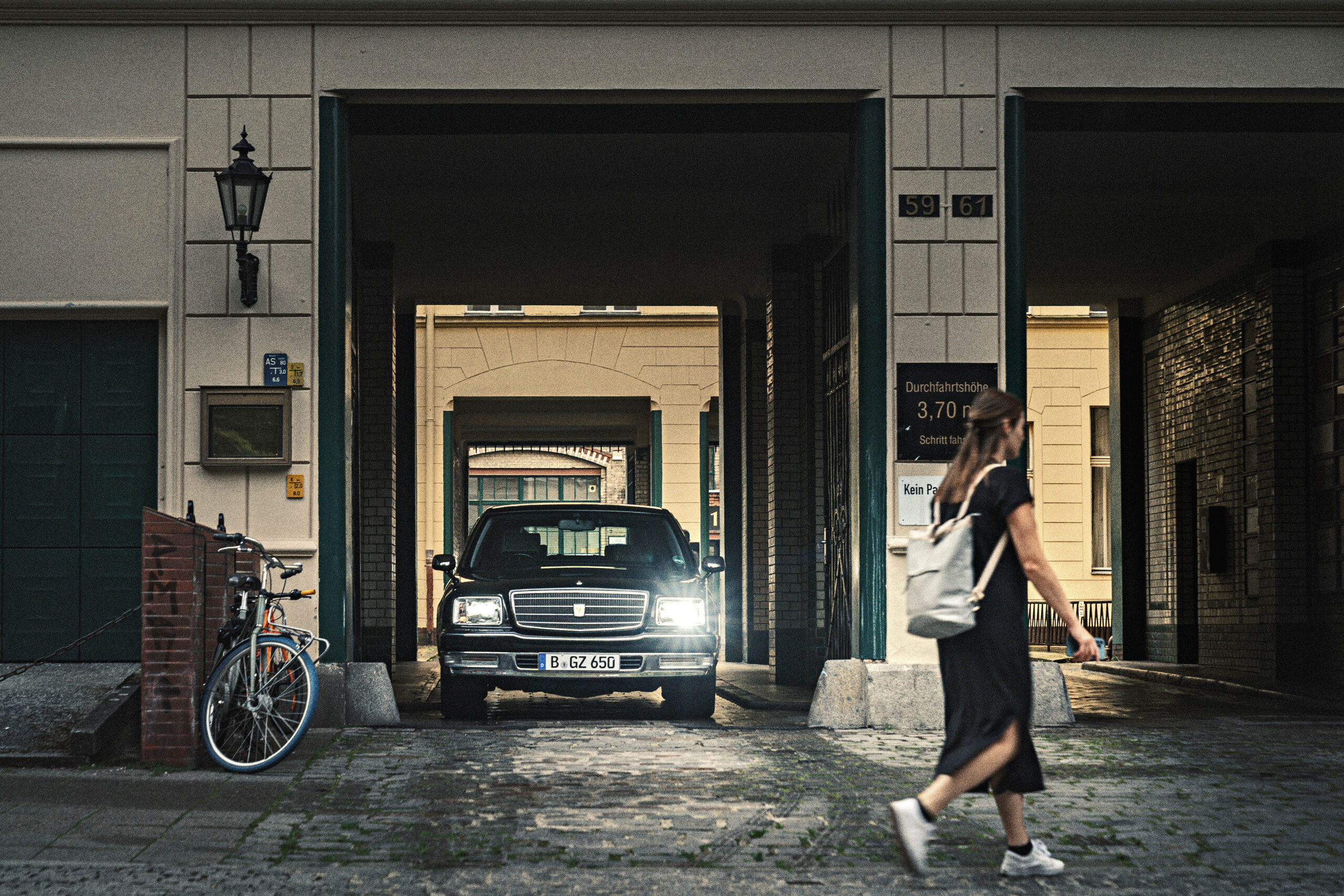
In the Christian worldview, below us there is a hell for sinners and up above a sweet heaven for the pure of heart. We, the living, are stuck somewhere in between, looking up with hope while dancing on the rooftop of hell. That’s how hot the asphalt felt in the German capital this summer. Either things are getting warmer because of climate change, or the devils in charge of giving us hell had received new temperature mandates from on high for how to treat their sinners. What the devil does the devil use to heat hell with? Certainly not solar or wind. Hell is heated with oil and gas in blatant disregard of any austerity measures. And it’s heated for all it’s worth. They don’t have to worry about the future down there either, because hell’s future is secure. But not ours. Our future is determined by fear and anxiety, and it’s hard to say what we’re more afraid of at the moment: ecological collapse, new epidemics, war – or that artificial intelligence will take over the planet and make us obsolete. My money is on AI, which seems to be on almost everyone’s minds these days.
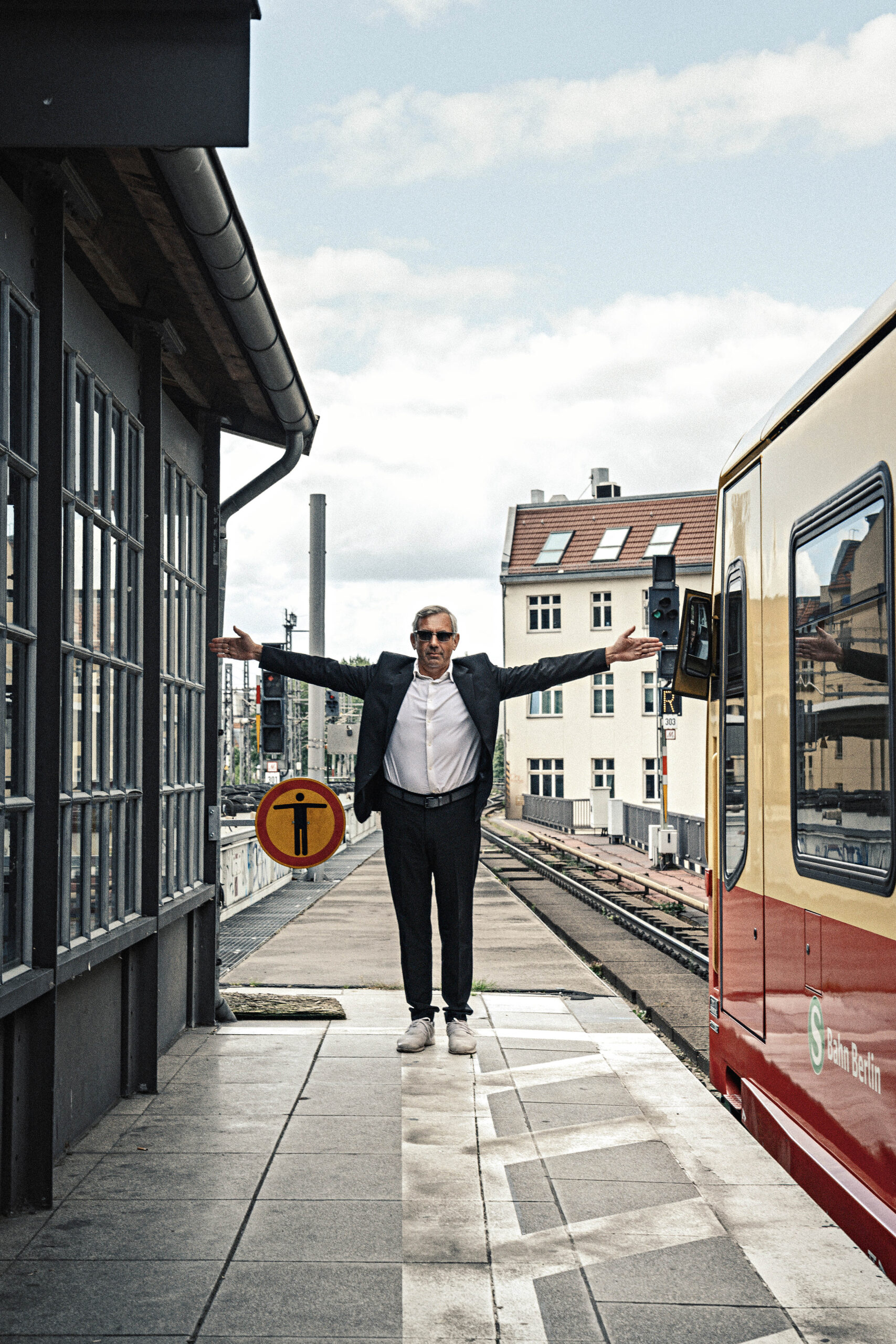
I took my mother to the movies last week to flee from the heat. The new Mission: Impossible was playing for one day only. “Hey,” my mother objected at first, “I already saw this movie twenty years ago!” It took me a lot of energy and effort to convince her that this was a new installment of the same film. Like the old one, it started out with a bunch of evil Russians, and we were looking forward to Tom Cruise blowing up the Kremlin one more time. But the Russians were dead just five minutes into the film, killed by an AI. Poor Tom spent the next three hours chasing after this AI, which was always one step ahead of him. Or two steps. Tom ran across the screen so fast that we had reasonable doubts whether this was the actual actor or just a copy created by the sneaky AI. Many of my friends are already worried about being unemployed because of this new technology, especially the artists, writers and journalists. They believe their professions will soon be hijacked by artificial intelligence, long before it finally achieves world domination. How will we live under its rule? Will we be better or worse off? Will it take care of us, find some kind of employment for us? Someone has to guard the plug, after all. My mother remains optimistic. She’s hoping for all-new, AI-generated mystery novels from Agatha Christie. She’s already read all of the old ones fifty times over and said the other day that Agatha Christie’s writing was getting worse all the time. “But Mama,” I said, “those are the same books you’ve read and enjoyed several times before. How can they get worse?” My mother is ninety-two years old, and it’s useless to argue with old people because they’re always right. “Yes,” Mama said, “the books used to be good, but they’ve gotten worse with time.”
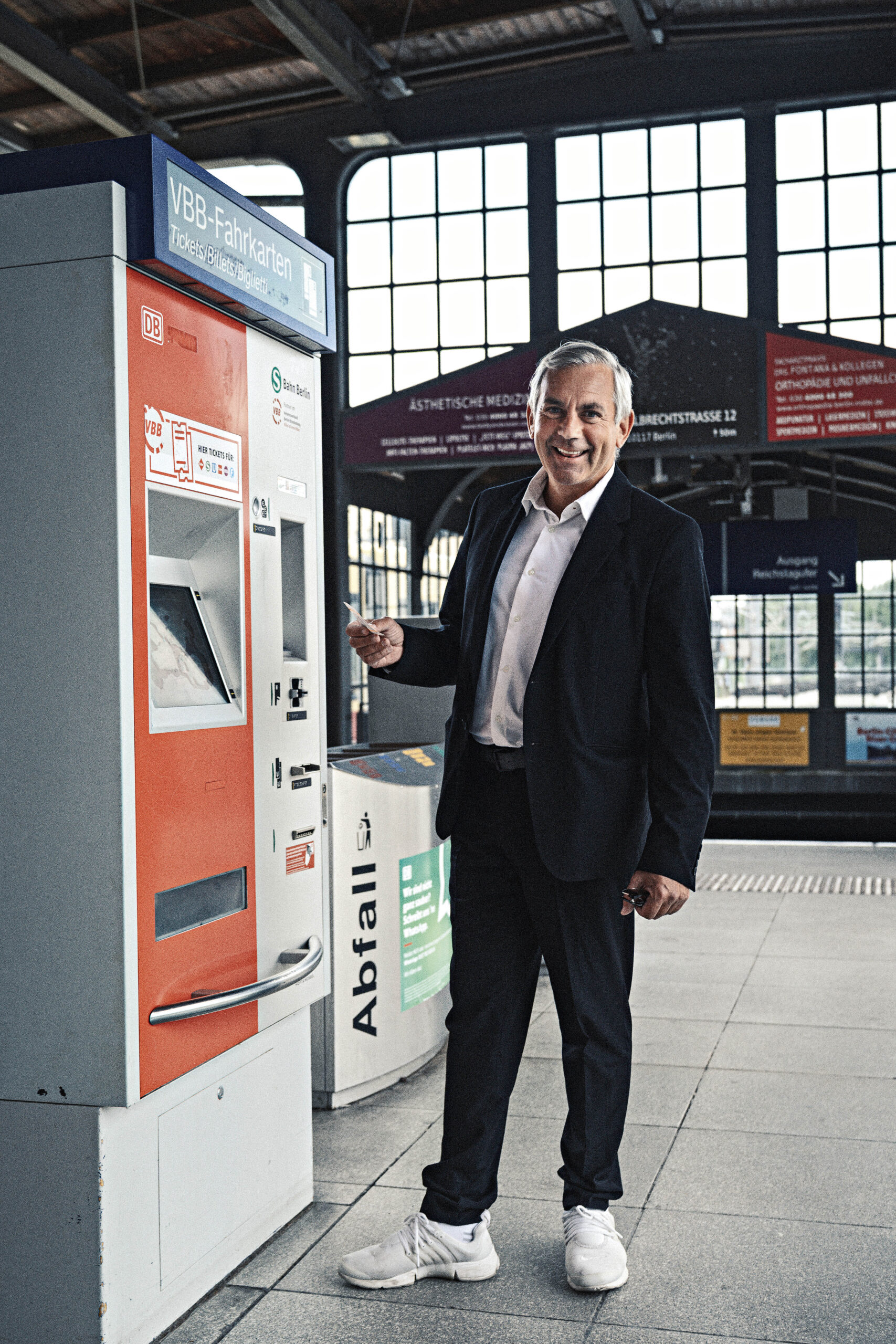
That may indeed be true for books, but not for cars. On the contrary, old cars tend to undergo a sort of renaissance. They enjoy a special status.
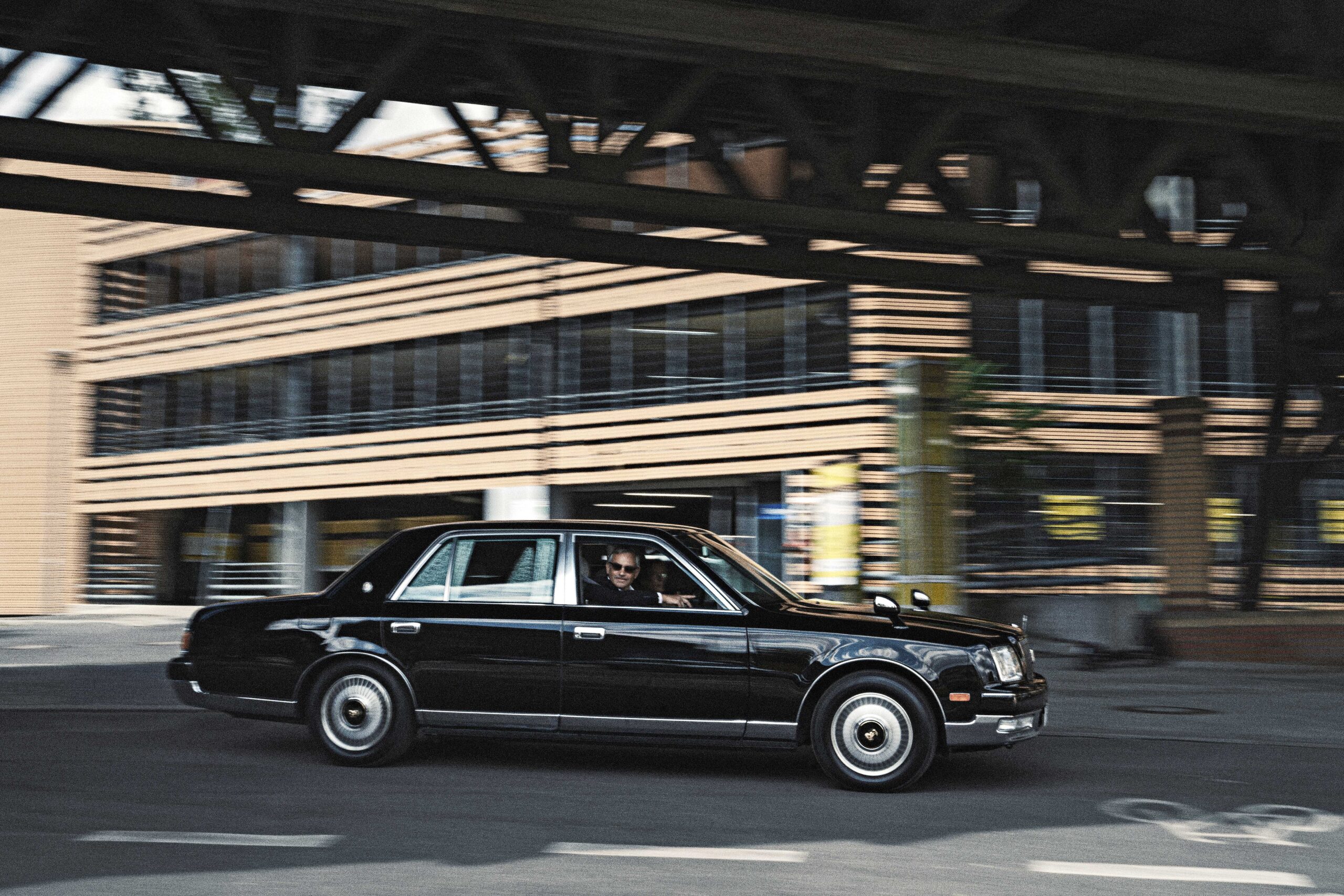
Old cars are loved, new ones are just driven. And at the moment, we’re unsure as to how to move ahead into the future. Somehow we’ll have to keep moving, but how? By tram, perhaps? Subway? Or by car after all? For this “Wild Things” issue of ramp, Michael, the editor-in-chief, has come up with a crazy idea. The two of us, both seasoned car drivers, will be riding the subway in Berlin. The subway actually runs above ground on several sections, so we didn’t have to worry about descending into the depths of hell. We’ve never actually covered the topic of mass transit in this car magazine, yet public transportation is often seen as an option for the future. Berlin’s trams and subway cars are quite modern, it’s just that they usually don’t go where you want to go, only where there are tracks. Of course, ramp wouldn’t be Germany’s classiest and best car magazine if we didn’t include at least one automobile in our test. It had be a wild and crazy car, for a wild and crazy day. A friend and reader, an avid driver, car enthusiast and collector, gave us one of his gems to test drive, a Toyota Century, a Japanese car from a time when the Japanese ventured far out on a limb. The Japanese have certainly made a name for themselves as manufacturers of small, sturdy cars, filling up the planet with their soapboxes, perfect for an island nation with little space and lots of traffic. But somewhere in their hearts, the Japanese also carried delusions of grandeur, squinting enviously at the Big American Car. So one day Toyota decided to show the Americans what real luxury was by creating a stunning hand-built car, “a symbol of conservative success”, with all the bells and whistles: white window curtains, drapes, wool-covered seats, silver-plated ashtrays and massage seats with remote control. And a twelve-cylinder engine that is so quiet you could fall asleep at the wheel – if it wasn’t for the right-hand drive. In right-hand drive, the windshield wiper is where the turn signal is supposed to be. That’s why the windshield wiper was constantly on during our test drive.
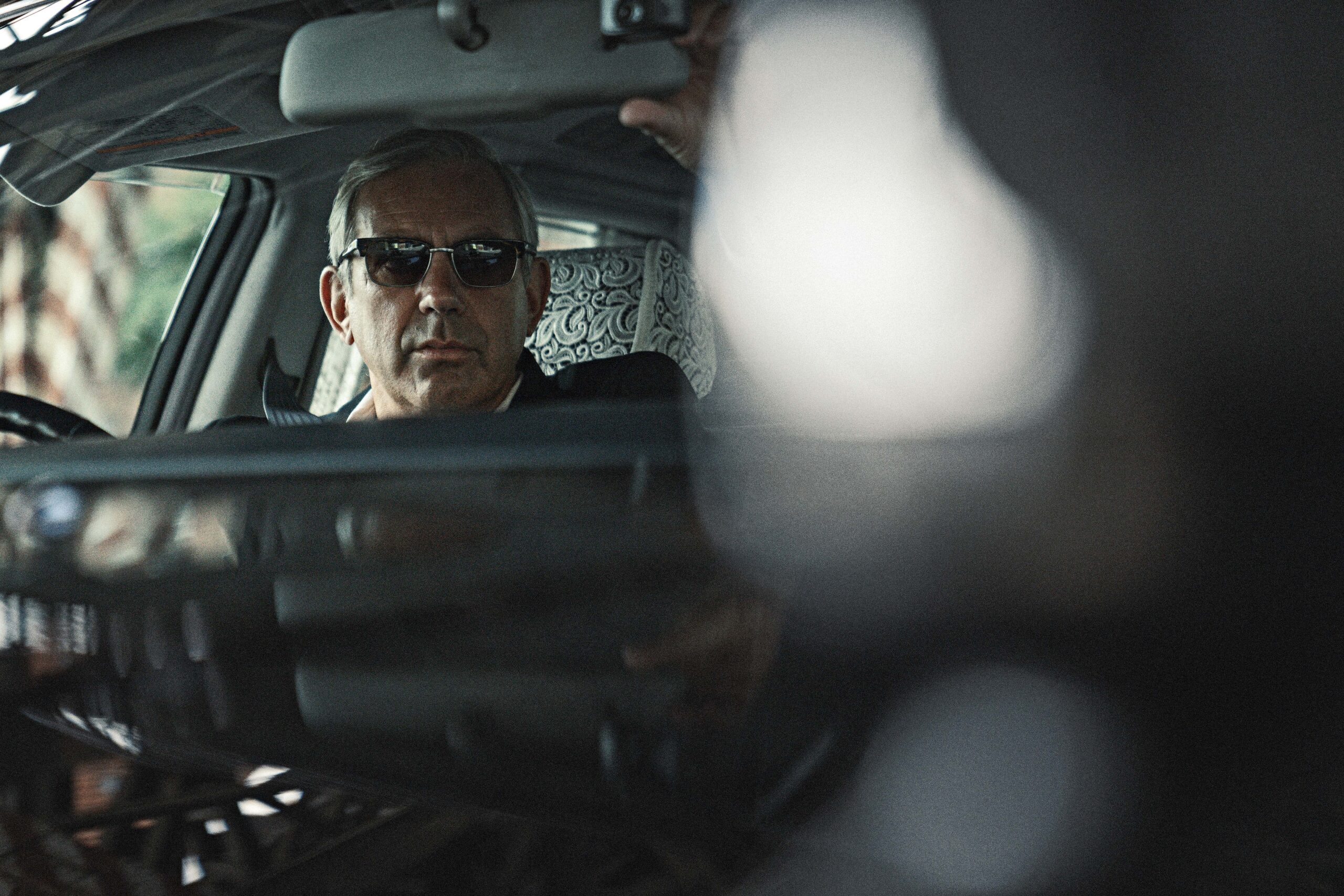
According to Wikipedia, the Century is produced in a limited run, mainly for use by the Japanese royal family, senior government officials, the prime minister and other big shots. I don’t quite believe that, because I was once treated to a ride in one of these cars in Japan, a long time ago, with the same glamorous interior, only without massage seats – a black car decorated with white powdered curtains and plastic flowers. The driver wore a black uniform and white cloth gloves, and I felt a little like a corpse, because the car had the timeless beauty of a hearse. But it was just a taxi. The gloved driver, very affable and considerate, immediately noticed that I was having trouble orienting myself due to the right-hand drive. I had wanted to sit in front, next to the driver, and initially tried to get in from the wrong side.
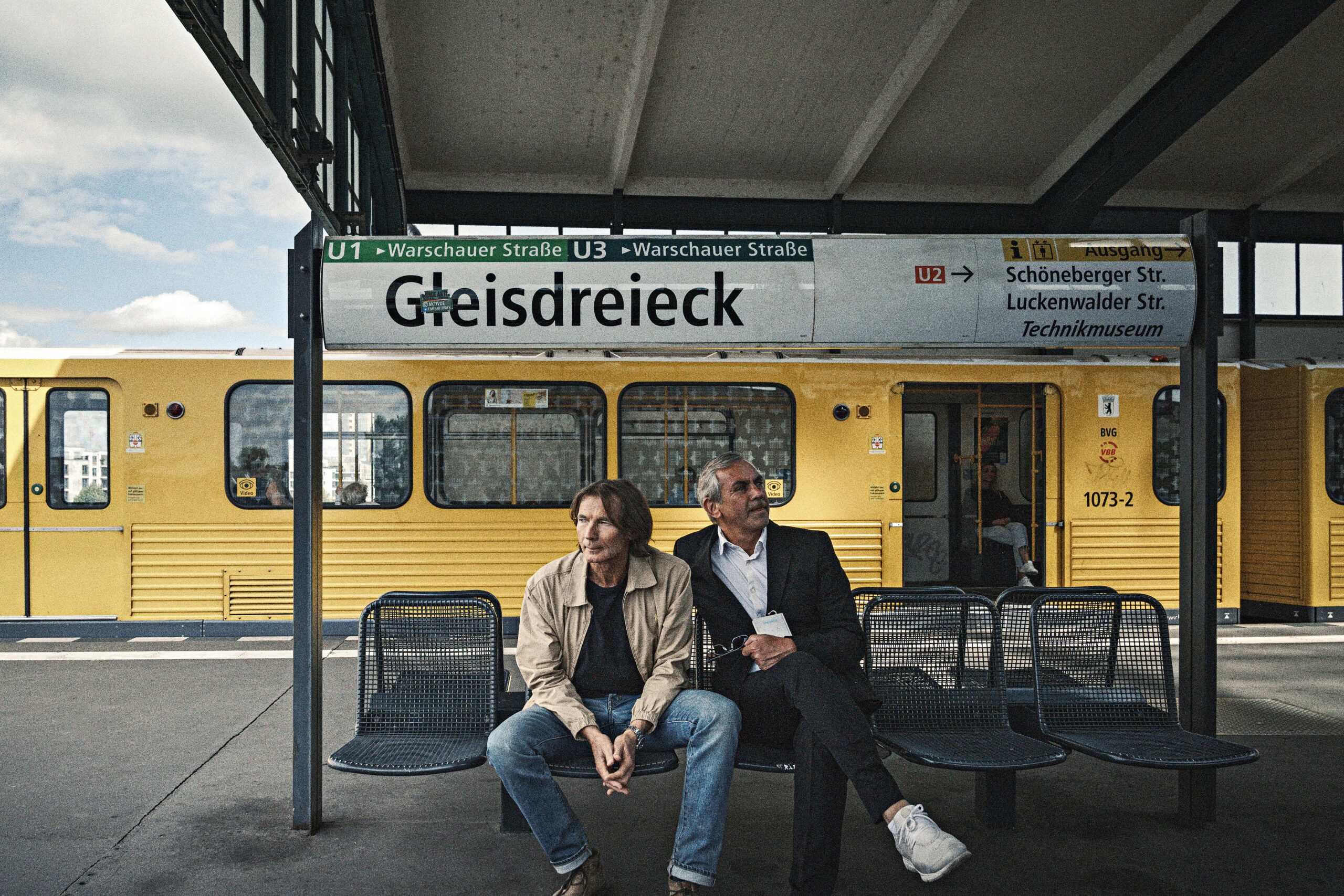
But you don’t sit in the front of a taxi in Japan. He got out of the car and helped me take a seat in the back, showed me the mini-drink machine that was installed in the car so I wouldn’t get bored during the ride. The Japanese at that time had these vending machines everywhere, one for hot drinks and one for cold drinks. Since then I’ve been to many countries, but nowhere else have I met such polite taxi drivers. The Japanese have the best taxi drivers in the world, I say. In Russia, America and Europe, taxi drivers are usually politically obdurate right-wing conservative whiners, they like Trump and praise Putin, they want a strong leader instead of a real government and wish for everyone who doesn’t drive a taxi to be punished more severely for any and all offenses. In Berlin, I try to not even breathe Russian when I take a taxi. Because as soon as they hear my Russian accent, they immediately start praising Putin. Oh, shut up, I think when that happens, but I don’t say it out loud, because I want to arrive at my destination. All the autocrats and tyrants should get together and form a taxi driver state, far away from the rest of us. A taxi driver state with Trump as president and Putin as prime minister. It would be a great relief for the world.
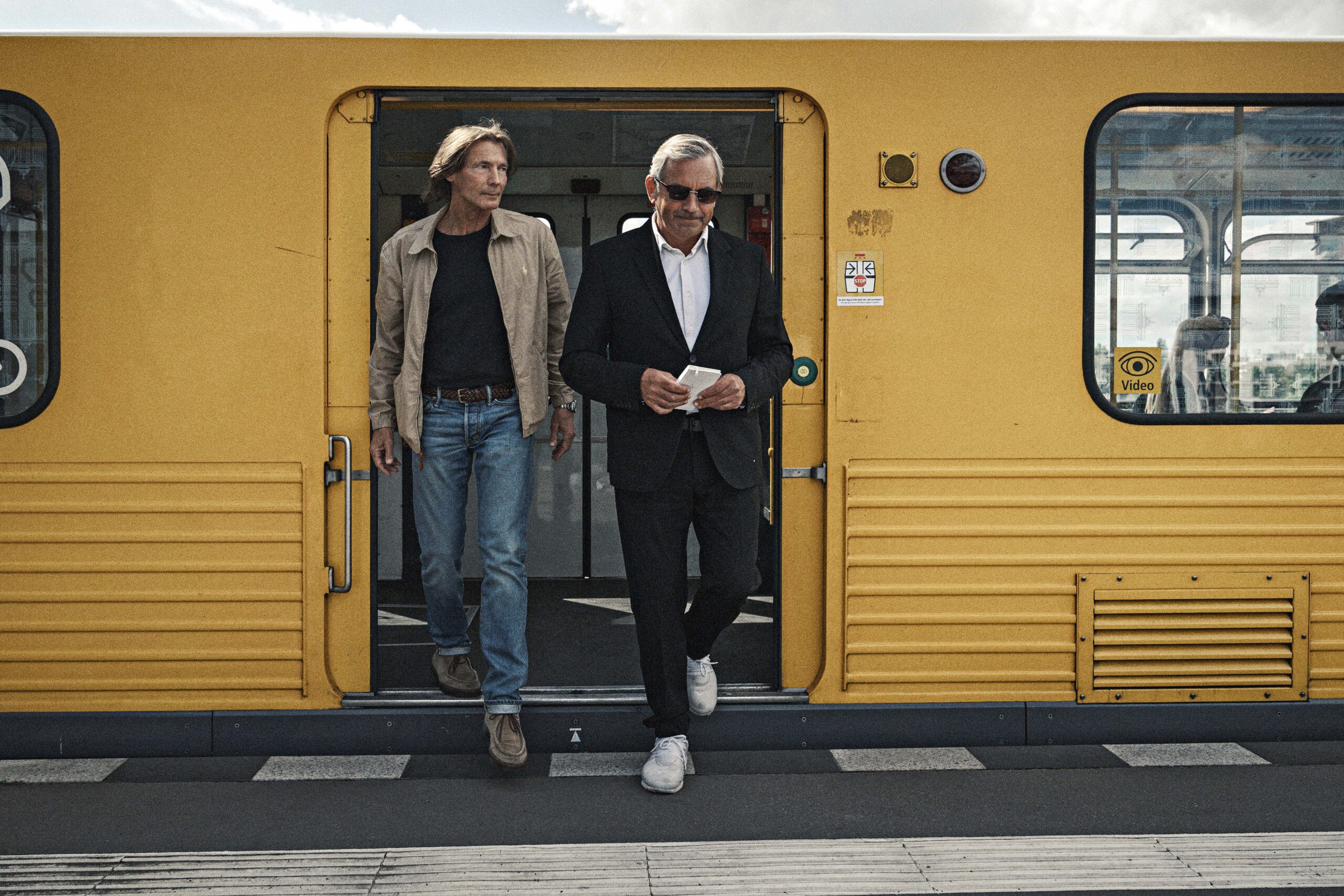
Japanese taxi drivers are different: polite, attentive – and they don’t talk politics with strangers. Perhaps I am too generous in my praise. Perhaps they don’t talk politics because they don’t speak English well enough. Perhaps they, too, go crazy every now and then, but if they do, they do it on their own free time, not at work. I had previously suspected that Japan is not as serene and rational as it seems at first glance. There are wild, untamed things hidden behind the cloak of ostensible politeness. Japan is supposedly the world champion when it comes to pointless inventions, for example. Nowhere else is so much strange stuff invented as in Japan, and I don’t just mean mobile washing machines and the noodle fan. Japan’s intention has always been to inspire the rest of the world to the point of deep admiration. I remember how as children we believed that all the groundbreaking inventions in the world came from Japan. Even in the magazines of my Soviet homeland, which were fundamentally suspicious of the West, the inventions that came out of Japan were described with praise and reverence.
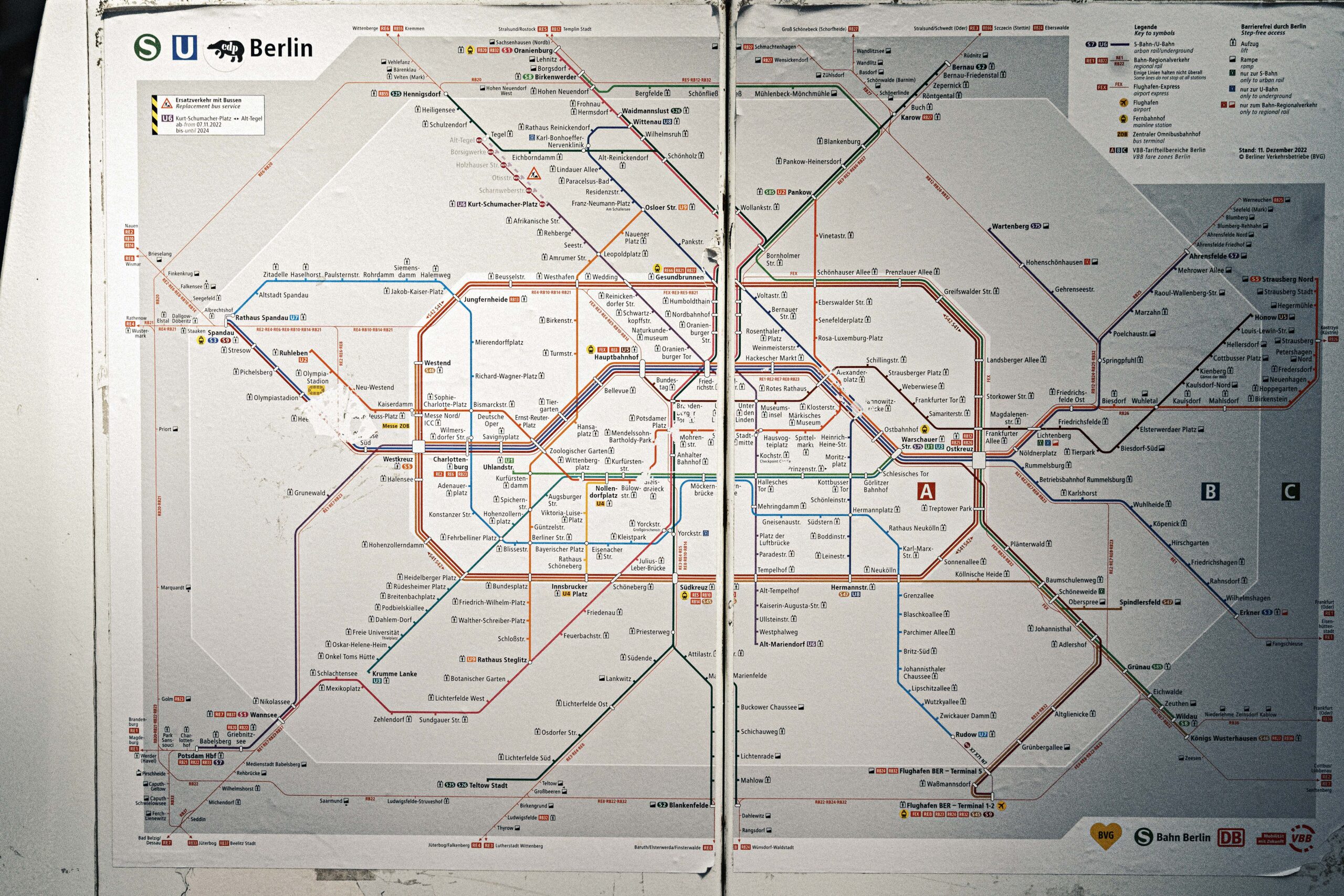
Unlike in the United States or Europe, in Japan the state personally intervened as a visionary and co-creator in the invention process. The state sought to transform everyday life, to make life more comfortable and people-friendly, it strove to make things more human. People’s lives were supposed to become easier, not thanks to space capsules, but thanks to technology: mattresses that adapt to the shape of a person’s body, domestic robots that do the dishes, play with the kids and tell jokes, refrigerators with built-in TVs, singing toilet bowls with remote controls that could simultaneously play Mozart and wipe the butt of the needy. The toilet bowl, I think, was meant for lonely people who have to spend a lot of time on the toilet and have no one to go to a Mozart recital with.
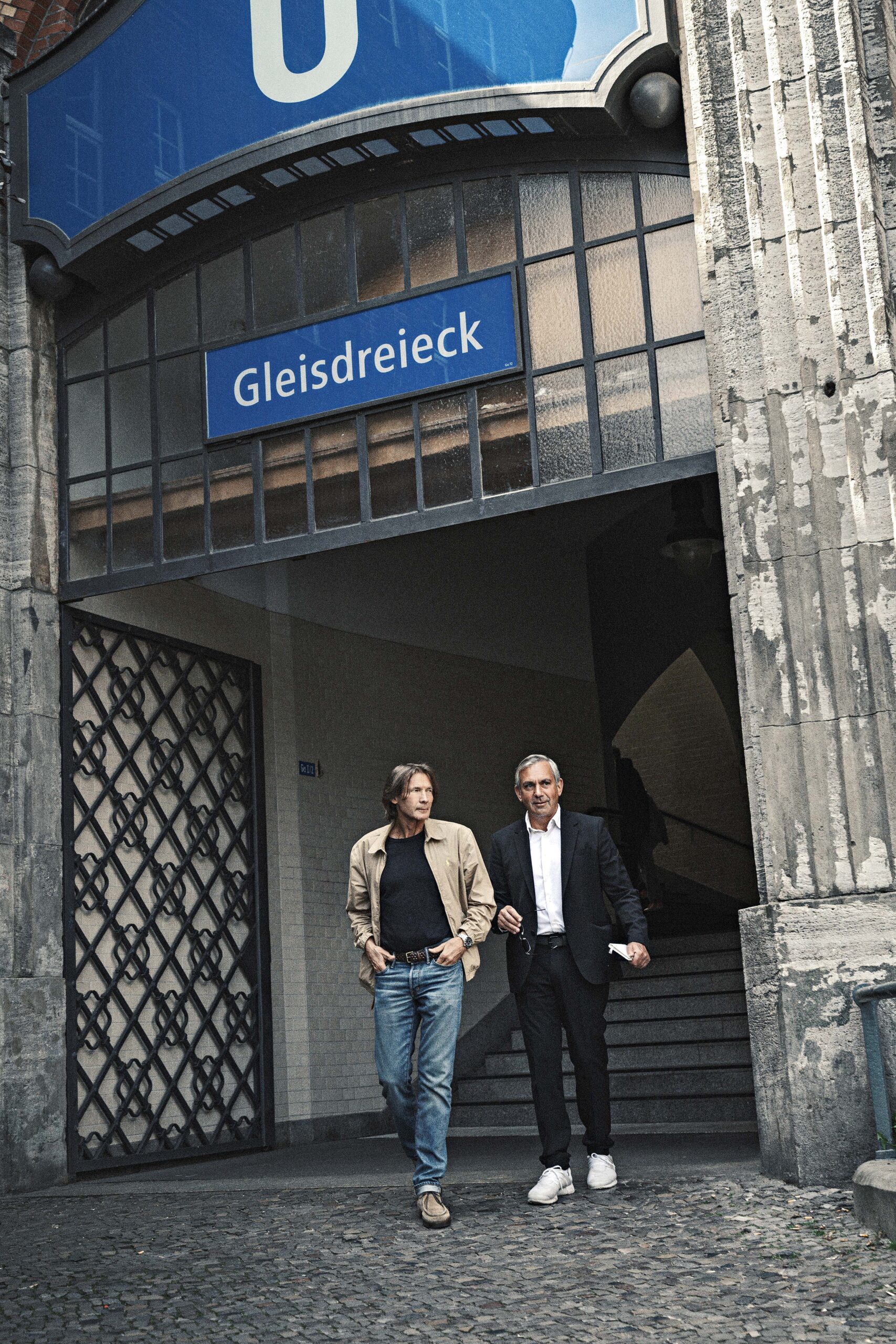
With all of these inventions, Japan wanted to conquer the world. But the world remained conservative. The world took the Walkman and the flat-screen plasma TV, but the rest of the cutting-edge household gadgets never caught on in the international market. Most of the inventions weren’t even noticed by mankind, with the possible exception of the music-playing toilet bowl, which I regularly find in German households, wondering every time what the practical purpose of this device is supposed to be.
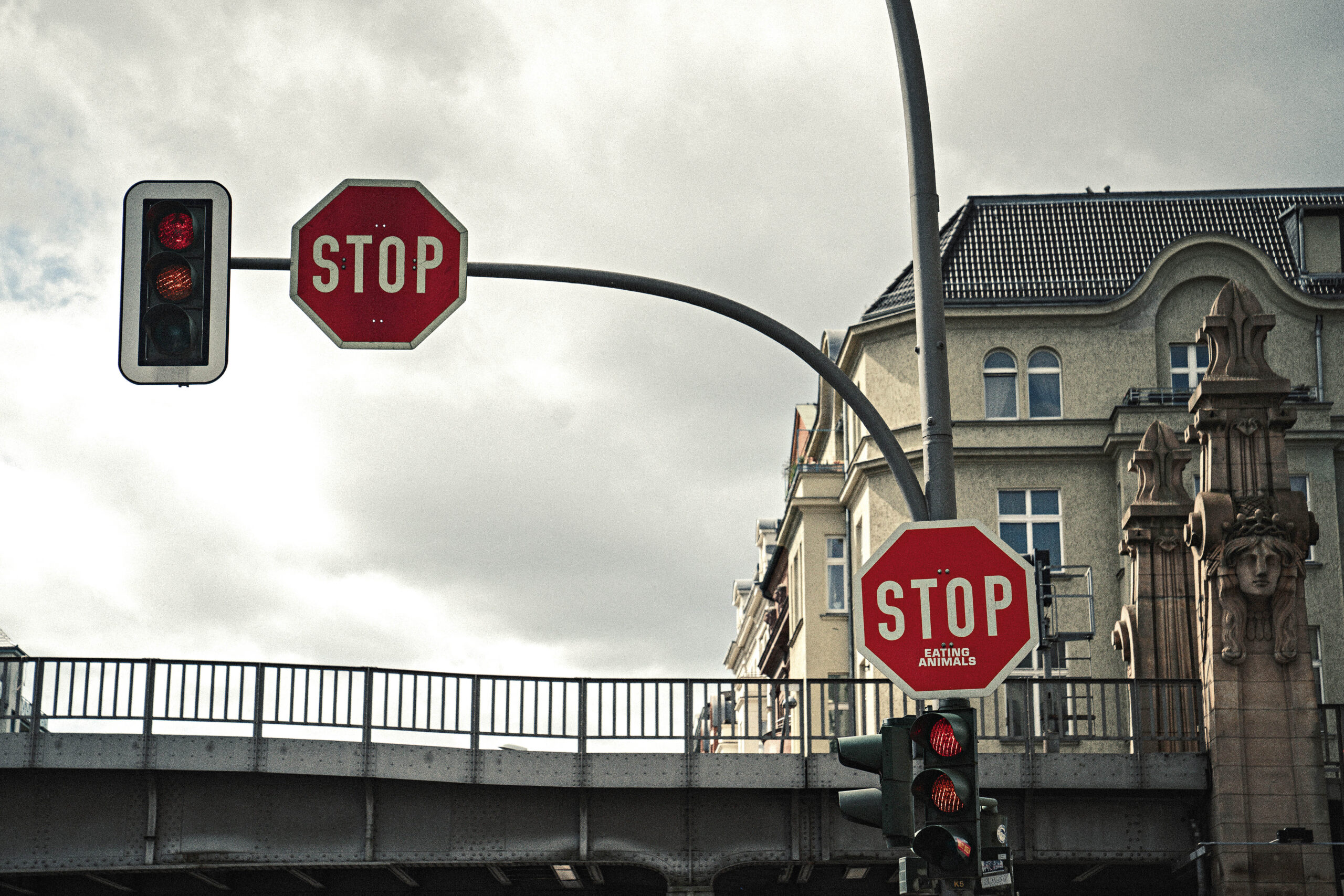
Even my neighbor in the small village in Brandenburg where we live has a Japanese toilet in his little house.
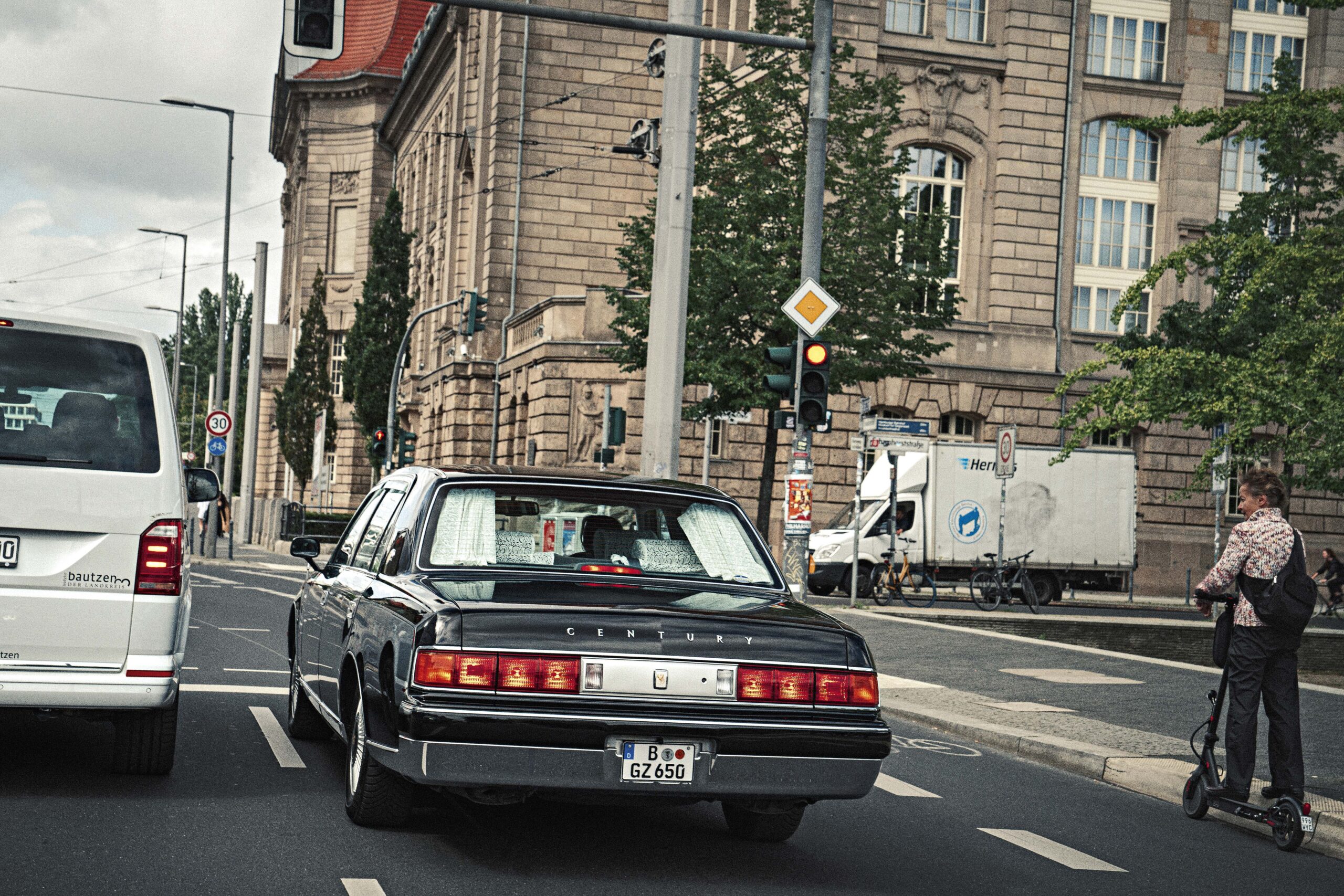
My neighbor, it must be said, is generally a progressive type of person who loves to browse the internet for new Japanese inventions. He even ordered a pack of Japanese plastic fishing lures once with flashing lights that can be controlled underwater from your smartphone, change color and dance. He hasn’t caught a single fish with them, however. So far, the Brandenburg perch have been confused and wary of this kind of progress. They don’t swallow the Japanese lures. Japanese novelties have always had something domestic about them, they are meant to give us a better life. The Toyota Century has the charm of a moving living room as well: while driving the car, it always wanted to massage my back or further my education, constantly showing me a map of the world on the screen, instead of a street-level GPS, according to which I was somewhere between Africa and Japan. Exactly: in Berlin.
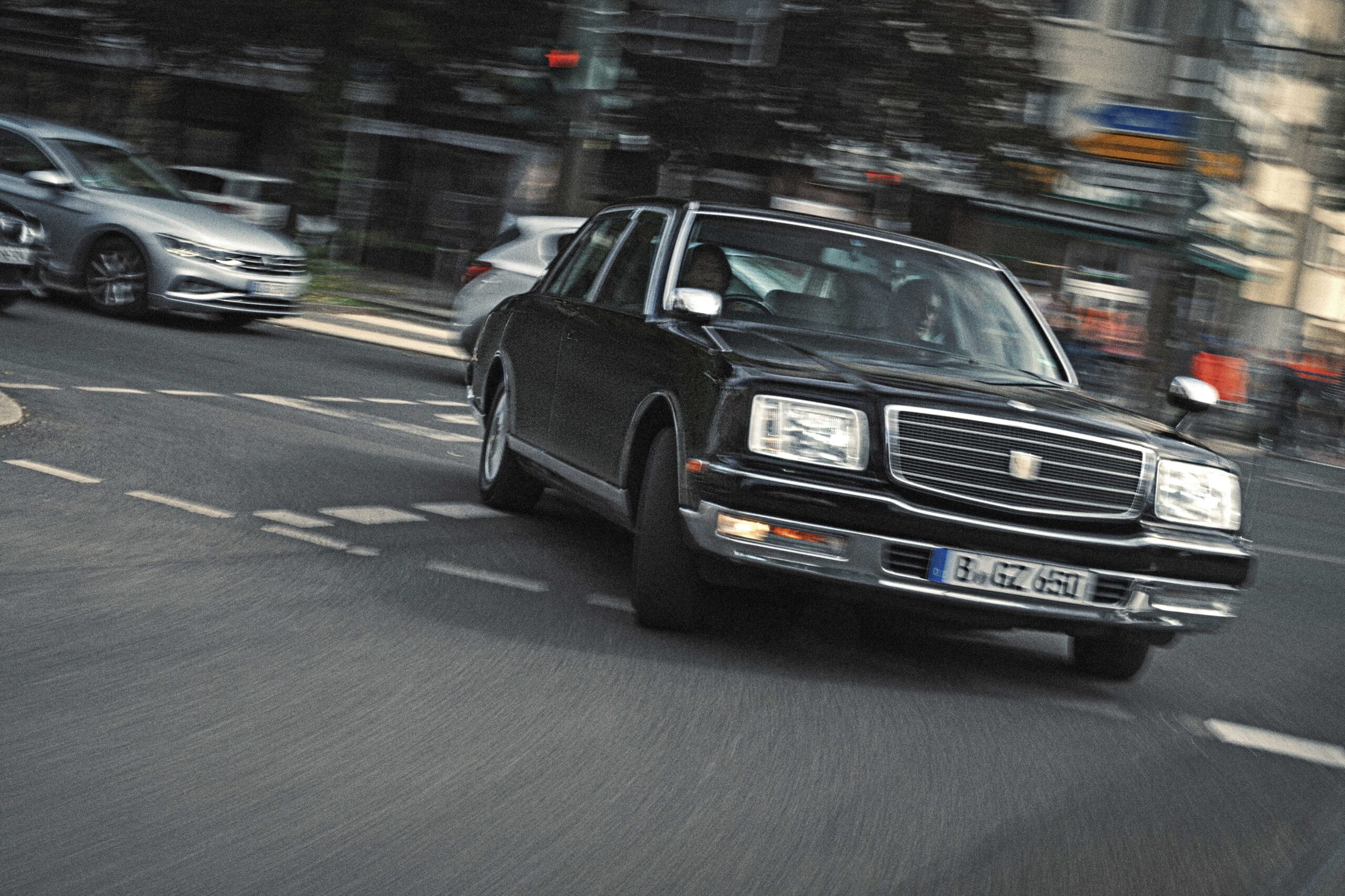
We met in Kreuzberg, where it reeked of cannabis and kimchi just like everywhere else in Berlin. The German capital at some point has managed to earn itself the reputation of being a party city, and ever since we get uninterrupted streams of underage tourists coming here during their school holidays, which means almost all year round. The world is a big place and somewhere someone is always on vacation. These groups of young people populate the streets, they want to experience wild and crazy things, they want adventure, they’re looking for the ultimate party in the ultimate party capital. Where are all the hip clubs, they ask. These naive young people still haven’t figured out that the party is always right where they are. They themselves are a party running through the city.

Berlin will never get rid of this reputation, there’s no beating the party city, and an image like that changes pretty much everything. Young people these days love Asian cuisine and street food that smells like pineapple and wet dog. They like to ride bicycles, but even more so they love travelling by tram, subway and train. Old people, on the other hand, like to drive old cars, and many of them stopped to marvel at our Toyota, commenting on how beautiful it was, a little out of time. Things today are no longer about beauty or passion, it’s all about performance and efficiency. Automobile manufacturers want to build cars that are fit for the future, without even knowing what the future holds. Could it be that our ancestors, the hunter-gatherers, had a more adventurous life than we do, all without cars? They didn’t have to do what we call work today, not to mention that many of today’s professions have become meaningless anyway, they can be replaced by machines, by an AI or by Japanese robots. The Japanese still produce the most robots on the planet. And soon we humans will only be doing those things that make us happy and give us joy.
Who wants to become a cashier, cheese monger or beverage salesperson? An AI can take care of that. At the moment, we live in three dimensions at the same time. We look at the future on the big screen, which looks deceptively real, and cringe at the thought that the future will be taken over by an AI, because then we will have nothing to say on this planet. We’re constantly reminiscing about the past and can’t get enough of the old things. And in the present, we can’t even get organized enough to give everyone in Germany a decent internet connection. Heck, in our part of Brandenburg, we often don’t even have network coverage. What we need to do is make time for some wild things, untamed things, to learn how to appreciate the old and look critically at the new. The future can wait.
Text by Wladimir Kaminer
Photos by Matthias Mederer · ramp.pictures
ramp #62 Wild Things

Just heading along, the journey itself a wonderfully blank page that presents itself to us with a cheerful unpredictability, as an inspired playing field for trial and error, for curiosity and spontaneity, unexpected surprises and flights of fancy. Wild and untamed. Just like life itself. Find out more










